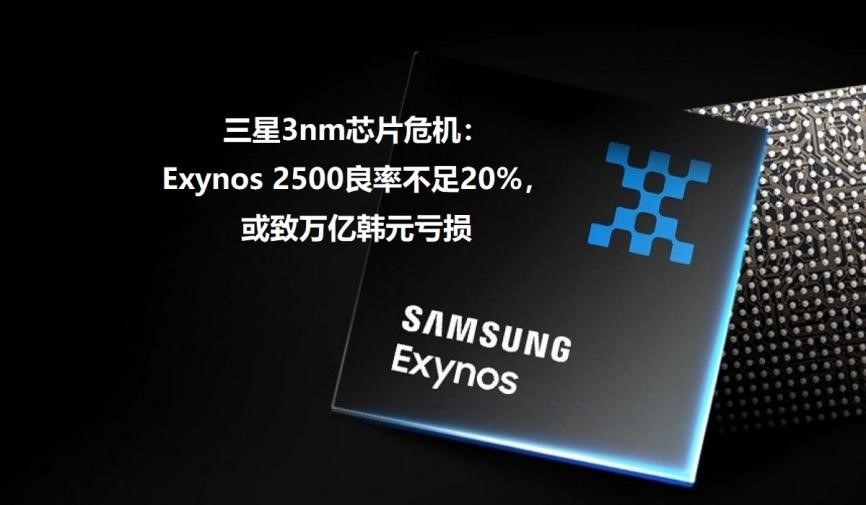In the context of increasingly fierce global semiconductor competition, Samsung Electronics is facing major challenges in the development of its 3nm process technology. According to a report by Korean media NewsWay, the yield rate of Samsung's 3nm process is less than 20%, which directly affects the mass production progress of the Exynos 2500 chip. This crisis not only poses a threat to Samsung's own technological progress, but may also have a profound impact on the competitive landscape of the entire semiconductor industry.
Technical Challenges and Market Implications
The Exynos 2500 chip is an important part of Samsung's presence in the high-end smartphone market, and its 3nm process technology was expected to deliver significant performance improvements. However, yield issues made it difficult for Samsung to secure order support in key divisions such as System LSI and Samsung Elec, which affected the Exynos 2500's mass production plans. Market analysts believe that Samsung's foundry division may face a loss of up to 1 trillion won in the third quarter, and this loss may persist in the short term, putting significant pressure on Samsung's financial position.
Yield problems and technological breakthroughs
Samsung's main challenge on the 3nm process is that its yield is much lower than the mass production standard. The yield rate of the Exynos 2500 chip is only 20%, which is obviously not enough to meet the needs of the market, and also puts Samsung's position in the global semiconductor market at risk. Despite the severe challenges, Samsung is still actively looking for a solution and plans to increase its yield to 60% by October this year. The achievement of this goal is crucial for Samsung, as it is not only related to the market competitiveness of the Exynos 2500, but also to Samsung's continued competitiveness in the global semiconductor field.

Figure: Samsung's 3nm chip crisis: Exynos 2500 yield rate is less than 20%, which may cause a trillion won loss
Strategic alignment and external cooperation
In response to the current predicament, Samsung may be considering partnering with external foundries to make up for the shortcomings of its 3nm production line. It is reported that Samsung plans to meet the needs of customers and maintain market competitiveness through cooperation with external manufacturers. This strategic realignment may be a temporary response to Samsung's technological dilemma, or it may be part of its long-term strategy. Through this flexible external cooperation model, Samsung hopes to eliminate production bottlenecks in the short term and improve production efficiency with the help of partner resources.
Future outlook and industry impact
While the Exynos 2500's yield issues are still ongoing, Samsung's R&D team is working hard to address this technical challenge in an effort to address the capacity bottleneck ahead of the Galaxy S25 series' release. If Samsung can successfully solve this problem, the Exynos 2500 will not only become a symbol of Samsung technological innovation, but also is expected to occupy a place in the high-end smartphone market.
Samsung's performance will have a direct impact on the competitive landscape of the global mobile market, especially in the competition with Qualcomm, Apple and Huawei. The success of the Exynos 2500 is not only about Samsung's future in the smartphone market, but also about its leadership in the global semiconductor market. Therefore, the mass production progress of this chip will receive great attention from all parties and become one of the most critical technological developments in the next few months.
Conclusion
Samsung's yield issues in the production of the Exynos 2500 chip reflect the challenges and opportunities in its 3nm process technology. As the market demand for high-performance chips continues to grow, Samsung urgently needs to solve the current technical bottlenecks to remain competitive in the global semiconductor industry. Despite certain difficulties, with its strong R&D strength and innovation capabilities, Samsung is expected to overcome the current difficulties and continue to occupy an important position in the future semiconductor market. If the technical challenges can be successfully overcome, the Exynos 2500 will be an important step towards Samsung's next technological peak, injecting new impetus into its global semiconductor development.






